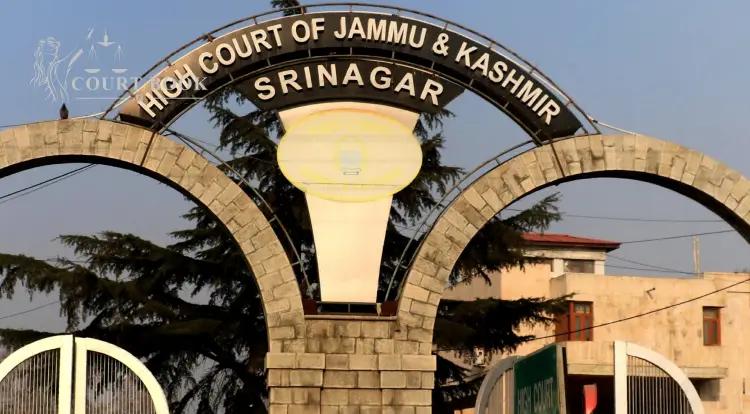The High Court of Jammu & Kashmir and Ladakh has raised serious legal concerns about the recognition of an online marriage between a serving CRPF jawan and a Pakistani woman. The issue came up during a writ petition filed by Munir Ahmed, a CRPF personnel, and his Pakistani wife. Justice Rahul Bharti passed the order while highlighting the unusual nature of the plea involving cross-border marriage and immigration issues.
Read also: Justice Arun Palli Sworn In As Chief Justice Of Jammu & Kashmir And Ladakh High Court
The couple had approached the Court seeking legal protection after the Pakistani woman, who had entered India on a short-term visitor visa, faced deportation following the visa's expiry on March 22, 2025. According to the petition, the marriage was solemnized online while the husband was in Jammu & Kashmir and the wife was in Pakistan. The couple submitted a Nikahnama, mentioning Handwal, Jammu, as the place of marriage.
However, the Court expressed doubts over the validity of such a marriage. Justice Bharti observed:
“Whether such type of marriage is permissible/recognisable in the eyes of law, is an aspect which requires attention of Government of India.”
The Court pointed out the mismatch between the claimed place of marriage and the fact that it was conducted online across borders. This raised a legal question about whether such a marriage can be considered valid under Indian law.
Adding to the complexity, the case comes in the backdrop of heightened national security concerns following the recent Pahalgam terrorist attack, which claimed 27 lives. In response, the Government of India cancelled all short-term visas issued to Pakistani nationals. This policy change directly impacted the Pakistani petitioner, casting doubt over her continued presence in India.
The petitioners claimed that an application for a Long-Term Visa (LTV) had already been filed under a 2014 communication issued by the Ministry of Home Affairs. However, the Court clarified that the decision on granting such a visa rests entirely with the Central Government. The Court recorded:
“It is for the Government of India to consider whether Long-Term Visa in favour of petitioner No. 2 to be issued or not even if there is a request made by and pending for grant of Long-Term Visa in favour of the petitioner No. 2. The present actual status of the petitioner No. 2 is that of a Pakistani National entering and staying in India on Short-Term Visa that too which has expired.”
Read also: Jammu & Kashmir High Court Clarifies MCI Guidelines on Non-Medical Faculty Appointments
The Court emphasized that the visa application of the Pakistani petitioner is still under active consideration. Justice Bharti remarked:
“... As and when that consideration would come from the Government of India… she would accordingly become either the beneficiary or the non-beneficiary of the outcome.”
In the meantime, the Court issued a notice to the respondents and asked them to file their response within ten days. The matter has been listed for the next hearing on May 14, 2025. The Court also stated that the possible deportation of the Pakistani woman will be subject to the final outcome of the ongoing petition.
Case Title: Munir Ahmed Vs Union of India














